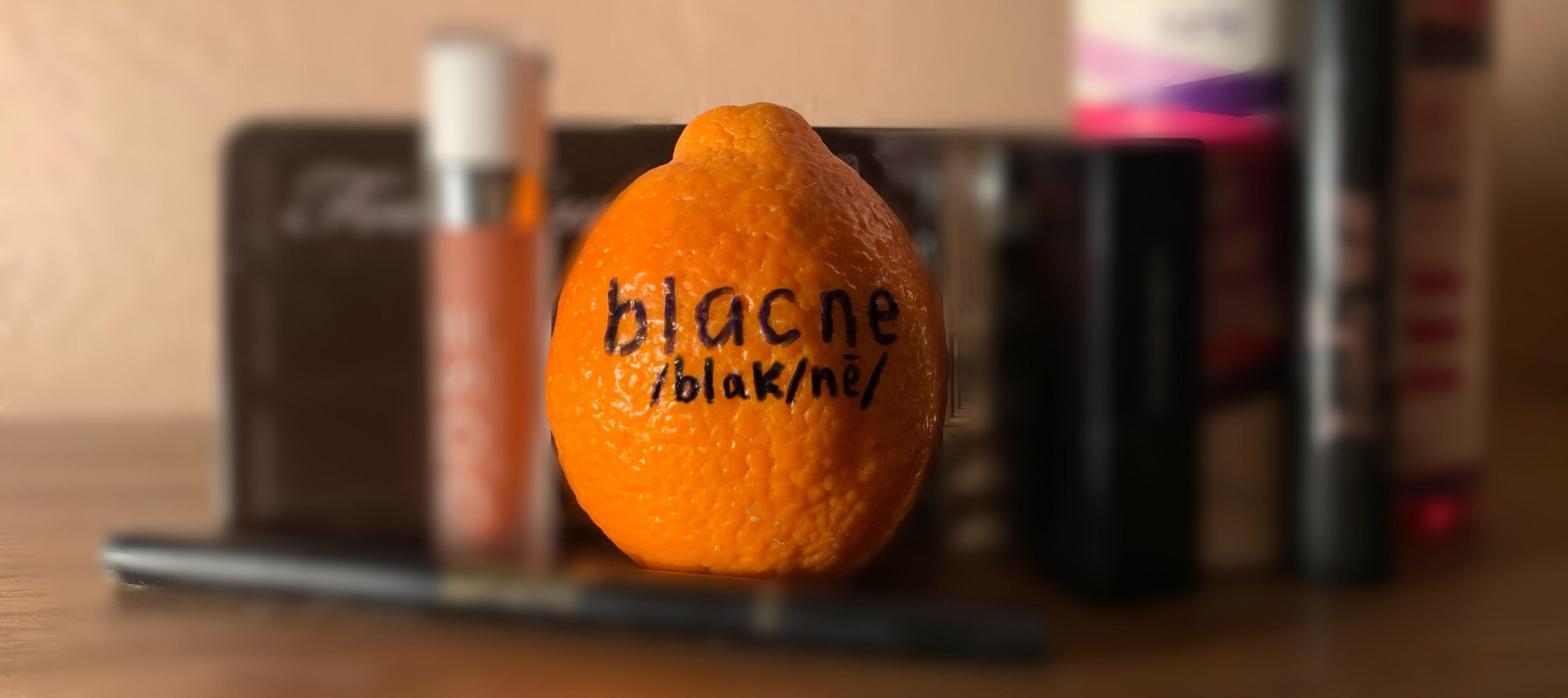Let me preface this with the statement that acne is completely normal. However, European and mainstream beauty standards play a major role in how people view themselves with acne, how they see and treat others, and the impact the treatment of acne, especially in minority groups. As a multiracial Black woman, my personal experience with acne has been a less than pleasant one, and I feel that it is important to have an open discourse on issues that influence the way Black people view beauty.
First, I want to address the language surrounding acne dialogue. Most people are referred to as “sufferers of acne,” which assigns a negative connotation and implies a subconscious hierarchy to the spectrum of people with acne. Acne doesn’t make you inferior to someone with clear skin in the same way that having clear skin doesn’t make you phenotypically superior to someone with acne.
A lot of the time, the hereditary nature of acne is often disregarded, leading to the belief that acne is always completely temporary and “fixable.” The truth is, some people are more prone to get acne, and washing your face with pink grapefruit scrub isn’t a surefire pathway to clear skin. According to The Guardian, a genetic difference in hair follicle structure that makes the skin more prone to harboring bacteria could be the causative factor behind the likelihood of exhibiting acne. Without genetic testing, however, it is evident that acne runs through familial lines. As a young girl struggling to feel accepted because of my ethnicity and class, being one of the only Black girls (or girls in general) with distinctly noticeable acne played a critical role in my search for identity.
As time passed, I used various methods to attempt to hide or diminish the appearance of my acne, including picking my pimples. As most people know, except me at that point, picking your pimples leads to major scarring and allows bacteria from the extracted acne to infect surrounding areas, inherently leading to MORE ACNE. I was giving myself more acne without even knowing it. SO, I took up what is now one of my favorite art forms and modes of expression to cover this skin-tastrophe: makeup. Wearing makeup (and cheap makeup, at that) allowed excess dirt build-up in my skin, and also emphasized the skin’s bumpy texture. David Lortscher, M. D. says, “Technically, most makeup doesn’t cause acne, but certain ingredients can clog pores, which helps acne-causing bacteria grow.”. While it did make me more comfortable and confident with the consolation that at least people couldn’t see my acne, it drew more attention and commentary than expected.
I call this time the era of microaggressions: not only was I one of the only Black people in my classes, but I had acne. People knew I didn’t like having acne, and I wore makeup to cover said acne. Anyone with acne has surely experienced the phenomenon of someone simply not minding their business and feeling the need to unsolicitedly comment on others’ appearances. To this day there are people (often with clear skin) who will verbally inform me that I have a breakout (like I can’t see my own face), ask if I only wear makeup to cover my acne (which is not the case), and indirectly voice their opinions on a third party’s acne, often times expressing disgust at how someone could “let their skin look like this.” While sometimes excusable on the grounds of ignorance, these comments are rarely taken with a grain of salt. Personally, I internalized them and convinced myself that maybe I did look “sickly” if I didn’t wear makeup and that having acne meant I didn’t wash well enough, didn’t care about my appearance, or that I would be eternally subjected to being associated with “gross” acne.
I went to a high school where a large majority of students were non-Black people of color. I didn’t have anyone with similar intersectional experiences in regards to being Black, having acne, and wearing makeup to reference. The Black girls who I could merely compare myself to had moderate to highly clear skin, with the exception of a hormonal breakout. With this, I chose to struggle individually in an attempt to protect my own feelings: I failed to communicate when people’s comments hurt me, failed to reject the mainstream beauty standards presented and failed to ask for help on how to not hate my skin.
Now, I have come to a point of understanding. Having acne, having people point out your insecurities (even if you don’t initially see it as insecurity), comparing yourself to girls who have never had a breakout in their life, and going above and beyond to change the way you are perceived by society are all entirely normal things to experience. I had to relearn and redefine what I conceived as beauty, moving away from the detrimental, intrinsically European standard that having fair, clear skin, a small nose, straight hair, and 3% body fat was the only way I could feel beautiful. Today, with my acne on a wave of breakouts, I offer an open invitation to change the mindset towards acne. If you hate your acne, if you love it, if you still can’t come around to being content with it, at least make sure it is your choice to feel that way rather than an attempt to conform or resist a “traditional” beauty standard. And lastly, allow yourself to be AT LEAST satisfied, if not delighted, with the beauty you emit both inside and out.

